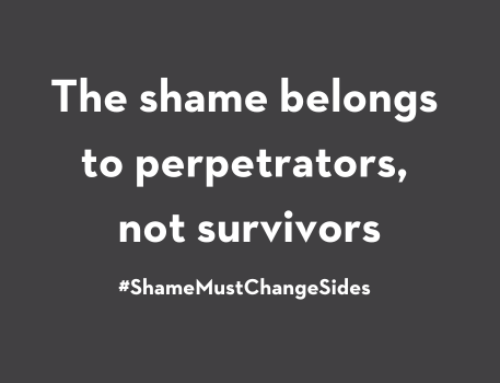Every six days, another woman in Canada is murdered by her current or former partner. Every night, more than 3,300 women (along with their 3,000 children) are forced to sleep in a women’s shelter or transition house because it’s not safe for them at home.
Do you know someone who is living with violence? You are not alone. Two thirds of Canadians know a woman who has experienced physical or sexual violence.
On Saturday May 30, 2015 in six cities across Canada – Halifax, Montreal, Toronto, Winnipeg, Calgary and Vancouver – Canadians will join together at Move for Hope, a one hour empowering workout that raises money to end violence against women. You still have time to register and help end violence against women in your community.
If you know a woman who is living with violence, our friends at AVON have helped create a tip sheet of what you can do:
- BE SUPPORTIVE. The most important thing you can do is listen and offer your nonjudgmental support. Tell them the violence is not their fault, and that they deserve to be treated with respect, no matter what. Let them know you do not blame them. If they decide to stay, do not judge them. The most valuable things you can offer a woman who is being abused are respect, taking her seriously and linking her to where she can get help.
- LEARN MORE ABOUT RELATIONSHIP VIOLENCE. Can you recognize the warning signs of abuse? Do you understand why many people don’t press charges against their abusers? To learn more, read our Fact Sheet.
- BE AWARE OF THE RISKS. Since many abusers closely monitor their victims (where they go, who they see, phone calls, email, Facebook, etc) small acts such as leaving someone a voice message may place them in danger. It pays to be careful about how you communicate with the victim.
- ENSURE YOUR OWN SAFETY. Never confront an abuser or do anything that puts you in danger or feels unsafe. Take care of yourself by talking through your feelings about the issue with a supportive, knowledgeable friend or professional.
- FIND RESOURCES. Before speaking to a victim, get the phone number of your local shelter, crisis line, YWCA, or agency offering specialized services for victims of abuse. This way you can provide specific information, if and when they are ready.
- CHOOSE THE RIGHT TIME AND PLACE. Be thoughtful about where and when to discuss your concerns. Choose a place where you will not be overheard or interrupted, and where they will have privacy. Don’t choose a time when you feel unprepared, or when they seem distracted or are in a hurry.
- VOICE YOUR CONCERNS. Be sensitive. Say something like: “I want to talk to you about something. I will keep this confidential, and will not repeat anything you say. I am concerned that you are in abusive relationship. Is there anything I can do?” Don’t give details about what you have witnessed or why you are concerned – they may feel they need to give excuses or deny what happened. Simply repeat that you want to support the victim. If they don’t want to talk about it, just say, “If you want to talk another time, I’m here and am ready to listen.”
- PUT THEM IN CHARGE. Don’t expect to know all the answers. Explore options with them. Don’t try to take over or tell them what to do. Tell them: “I won’t make you do anything you don’t want to do.” Ask direct, simple questions such as: “Do you want me to help you find someone to talk to?” or “Do you want to go somewhere safe?” If they aren’t sure what to do, simply encourage them to talk, and listen without judgment.
Learn more:







